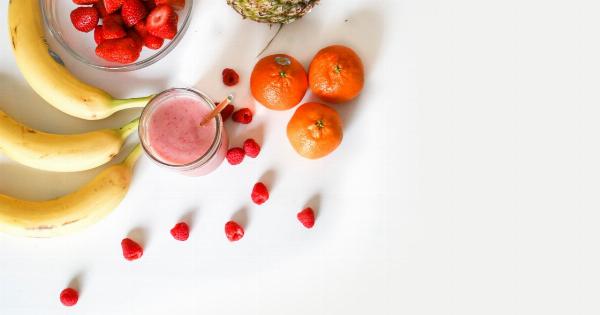Iron is an essential mineral that plays a vital role in our overall health and well-being. It is responsible for carrying oxygen throughout the body, supporting the immune system, and maintaining healthy red blood cells.
While many people focus on getting enough iron in their diet, they often overlook the importance of proper iron absorption.
In fact, certain food pairings can hinder the body’s ability to absorb iron effectively, leading to iron deficiency and related health issues.
1. Iron and Calcium
Calcium-rich foods, such as dairy products or fortified plant-based milk, are commonly consumed alongside iron-rich foods like meat or leafy greens. However, calcium can significantly inhibit iron absorption when consumed together.
Therefore, it is advisable to avoid pairing these two in the same meal to maximize iron absorption.
2. Iron and Coffee/Tea
Caffeinated beverages, such as coffee and tea, contain compounds called tannins that interfere with iron absorption. These compounds can bind to iron and prevent its absorption in the intestines.
It is recommended to consume these beverages separately from iron-rich meals to ensure optimal iron absorption.
3. Iron and Phytates
Phytates are naturally occurring compounds found in many plant-based foods, including whole grains, legumes, nuts, and seeds. They can inhibit iron absorption by forming complexes with iron in the digestive tract.
Soaking, fermenting, or cooking these foods can help reduce the phytate content and enhance iron absorption.
4. Iron and Oxalates
Oxalates are present in certain foods like spinach, beet greens, and rhubarb, and can interfere with iron absorption.
While these foods offer other nutritional benefits, it is best to pair them with vitamin C-rich foods to counteract the inhibitory effect. Vitamin C enhances iron absorption by converting it into a more readily absorbable form.
5. Iron and Polyphenols
Polyphenols are antioxidants found in many plant-based foods, such as berries, cocoa, and some spices. While they confer numerous health benefits, they can also impede iron absorption when consumed together.
To mitigate this effect, pairing polyphenol-rich foods with vitamin C sources can enhance iron absorption.
6. Iron and Zinc
Zinc is an essential mineral that, like iron, plays a crucial role in various bodily functions. However, when consumed together, zinc can compete with iron for absorption.
While both minerals are essential, it is important to avoid consuming foods high in zinc at the same time as iron-rich foods to maximize absorption of both nutrients.
7. Iron and Fiber
Fiber is an important part of a healthy diet, contributing to digestive health and overall well-being. However, consuming high-fiber foods, especially bran or whole grains, alongside iron-rich foods can hinder iron absorption.
Separating these foods and consuming them at different times can help optimize iron absorption.
8. Iron and Phosphate
Phosphate is a mineral that is often found in processed foods, including carbonated beverages and some fast-food items. Consuming these phosphate-rich foods with iron-rich foods can reduce iron absorption.
It is best to limit the intake of phosphate-containing foods when consuming iron-rich meals.
9. Iron and Dairy Products
Dairy products, such as milk, cheese, and yogurt, are nutrient-rich and provide various health benefits. However, they also contain calcium and casein, both of which can inhibit iron absorption.
To ensure optimal iron absorption, it is advisable to consume dairy products separately from iron-rich meals.
10. Iron and Alcohol
Excessive alcohol consumption can interfere with iron absorption and deplete iron stores in the body. Alcohol can disrupt the normal functioning of the digestive system, reducing the absorption of essential nutrients like iron.
It is essential to enjoy alcohol in moderation and prioritize a balanced diet for optimal iron absorption.
In Conclusion
Ensuring that your body effectively absorbs iron is crucial for maintaining optimal health. By being mindful of the food pairings mentioned above, you can maximize your iron absorption and prevent potential deficiencies.
Remember to always consult with a healthcare professional to assess your iron needs and develop a personalized nutrition plan.





























